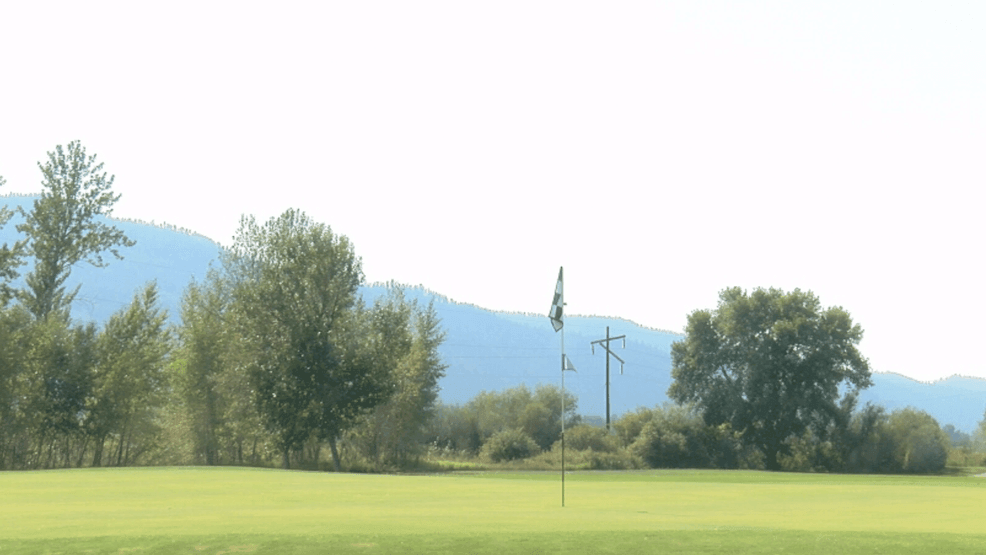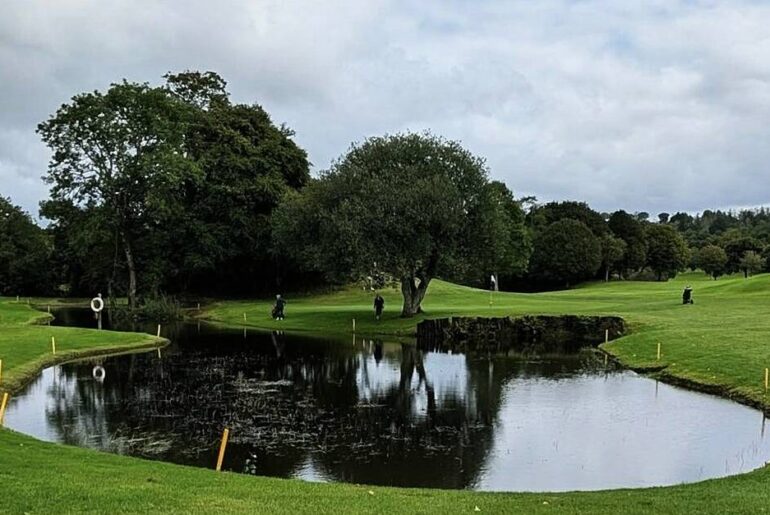FRENCHTOWN, Mont. — On September 28, the fairways of King Ranch Golf Course will be filled with friendly competition and the shared spirit of giving back.
The annual RiteCare Clinic Charity Golf Tournament, now celebrating its 25th year, is about more than camaraderie and competition, the event represents something even more impactful, ensuring that Montanans of all ages can find their voice.
Hosted by the Western Montana Scottish Rite Foundation, in partnership with the Ockler family and King Ranch, the four-person best-ball scramble has become the organization’s largest fundraising event. Each year, the tournament generates about a quarter to a third of the foundation’s total annual contribution to the DeWit RiteCare Speech, Language, and Hearing Clinic at the University of Montana. That financial support is essential for providing services to clients who may not otherwise have access to care. Whether due to geography, insurance limits, or simple affordability.
“This is our singular largest by leap and bounds,” said Scottish Rite personal representative Keegan McIntire. “The golf tournament is our way to raise funds to help meet the financial obligation that we have to pay for the clinic.”
The DeWit RiteCare Clinic, tucked inside UM’s School of Speech, Language, Hearing and Occupational Sciences, is more than a treatment site. It is the heart of Montana’s only graduate training program in speech-language pathology and a lifeline for people. Each semester, graduate students under faculty supervision provide specialized speech, language, literacy, swallowing, cognition and hearing interventions. Every client who walks through the clinic’s doors not only receives expert care, but also plays a vital role in preparing the next generation of speech-language pathologists.
“At the university we are able to create more of those clinicians and most of those clinicians actually wind up staying in Montana and serving our local communities,” McIntire said.
After a nearly 20-year gap left Montana without a master’s program in speech-language pathology, the clinic was reborn in 2008, thanks to efforts from Scottish Rite and Pete DeWit. Those absent decades left deep shortages in a state already challenged by rural geography. Leah Meloy, the clinic’s director and a clinical associate professor, explained that the need for trained providers remains immense.
That statewide impact is part of why the Scottish Rite Foundation has stood behind the clinic since day one. Speech and language development for children has long been a charitable priority for the Scottish Rite nationally. In western Montana, that mission extends to ensuring the university can continue turning out skilled clinicians who will stay and meet the state’s demand.
For many outside the medical world, speech therapy might conjure memories of a child practicing the letter “R” or “S.” While that is a part of the work, it’s just one small corner of the clinic’s mission.
“From gestures to body language, to the words we choose, to the way that we choose to communicate them, to the clarity of our speech, to the multiple languages that we might speak, or that the people in our community speak, all of that is our realm,” Meloy said.
Inside the DeWit RiteCare Clinic, graduate students work with preschoolers who are difficult to understand, school-aged children on the autism spectrum learning social communication and adults recovering from strokes regaining their ability to speak, process language, and re-engage at home or at work. Patients as young as premature infants receive help with feeding and swallowing, while older adults learn strategies to cope with age-related changes or illness.
The clinic has also gained recognition for niche areas of expertise. Specialists conduct groundbreaking research on chronic cough, a condition many don’t associate with speech therapy but which can be managed effectively with their intervention. This summer, the clinic unveiled state-of-the-art soundproof hearing booths, allowing in-house hearing evaluations and new avenues of research for the first time in its current history.
“Our whole focus is ensuring that everyone can communicate in the way that you and I are right now so that they can build friendships and have jobs and go to school and interact with their friends and family just in the way that we’re privileged to,” Meloy said.
Funding from the Western Montana Scottish Rite Foundation plays a unique role in the way the clinic operates. By offsetting costs through scholarships and sliding-scale fees, the clinic can select the best mix of clients for student training rather than limiting services to only those who can pay. That means families who might have been turned away elsewhere are still welcomed, and students leave with a deeper, broader skill set that will ripple out into communities for decades.
“If we were able to see someone who was not able to get services elsewhere because of an ability to pay for whatever reason, that’s sort of meaningful enough in and of itself,” Meloy said. “If we’re treating them through a student who is then going to get quality training and then we’ll go out into Montana and, a lot of times, into our rural communities and provide really high-quality speech therapy there. That, to me, is really what our what our clinic represents is kind of this exponential reach.”
The September 28 tournament will feature an 18-hole scramble with a shotgun start at 10 a.m., post-round lunch, team prizes and a raffle. At $500 per team, every entry goes directly to the Scottish Rite Foundation’s commitment to the clinic. All proceeds go to ensuring communication services remain available to those who need them most.
“Through our philanthropy directive is to help build communities and help build the future of those communities and that means investing in our children and having our children having the ability to communicate and get their needs met and being able to do so effectively is paramount for a positive and well-run society,” McIntire said.






